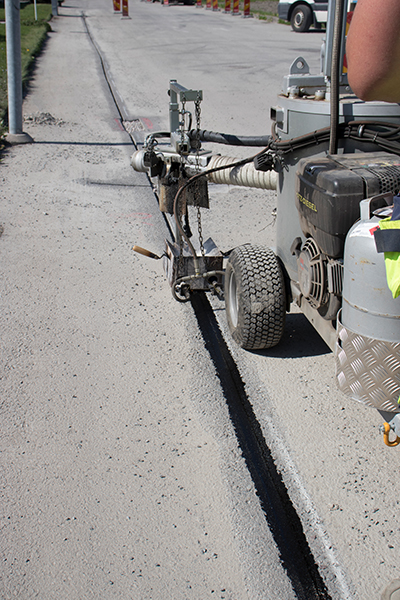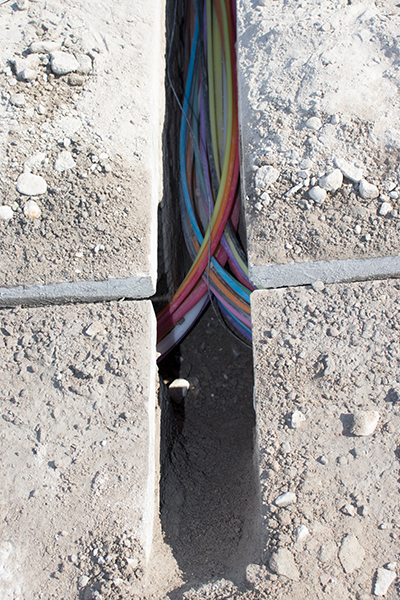Fast broadband expansion with the BIGUMA®- Microtrenching-System
dga-Group has been developing a new joint sealant system for microtrenching applications
With the BIGUMA®- Microtrenching-System, Dortmunder Gußasphalt GmbH & Co. KG has developed a combination of two mutually compatible joint sealants especially for the microtrenching method. This hot applied joint sealant system ensures that the channel in the asphalt produced by milling is permanently closed again so as to enable faster and more reliable broadband expansion.
While roads have to be torn open completely during conventional laying work for broadband expansion in order to lay the fibre optic cables, the microtrenching method allows a much faster expansion as this is less invasive. Here narrow channels with a width from 8 to 12 cm and a depth of at least 30 cm are milled into the asphalt surface into which the fibre optic lines are laid. The narrow channels are then filled again. This laying technique has numerous advantages: Besides high construction performance with between 150 to 600 metres of cable laid per day, the construction time can also be shorted, thereby reducing costs.
High requirements placed on the filler by the microtrenching method
Yet the microtrenching method also places high demands on the filler, which needs to close the channel permanently. “On customer request, we’ve developed a system of two joint sealants to be introduced in succession, these not only serve as protection for the laid cables but also absorb the movements by the asphalt due to the weather – while at the same time ensuring sufficient stability for the channels to be driven or walked over”, states Stefaan Haerinck, Sales Manager at Dortmunder Gußasphalt.
BIGUMA® -Microtrenching D8 is used as the first layer and is poured into the channel via a chute or bucket. Thanks to its stability, the compound stabilises the asphalt body damaged by the cannel, yet ensures adequate movement absorption in the filled chamber. In the second step, BIGUMA®- Microtrenching D3 is applied as a top layer where its unique polymer combination enables it to seal the channel permanently, thereby protecting it against water penetration. The asphalt road can therefore withstand all loads from traffic and the environment once again.
“When developing the new joint sealants, we also focused on optimal flow behaviour, so as to make processing on the construction site especially easy. Plus the excellent adhesion properties on bituminous and mineral substrates do away with the need for primer on asphalt surfaces”, states Haerinck, praising the further advantages of the BIGUMA®- Microtrenching-System.




